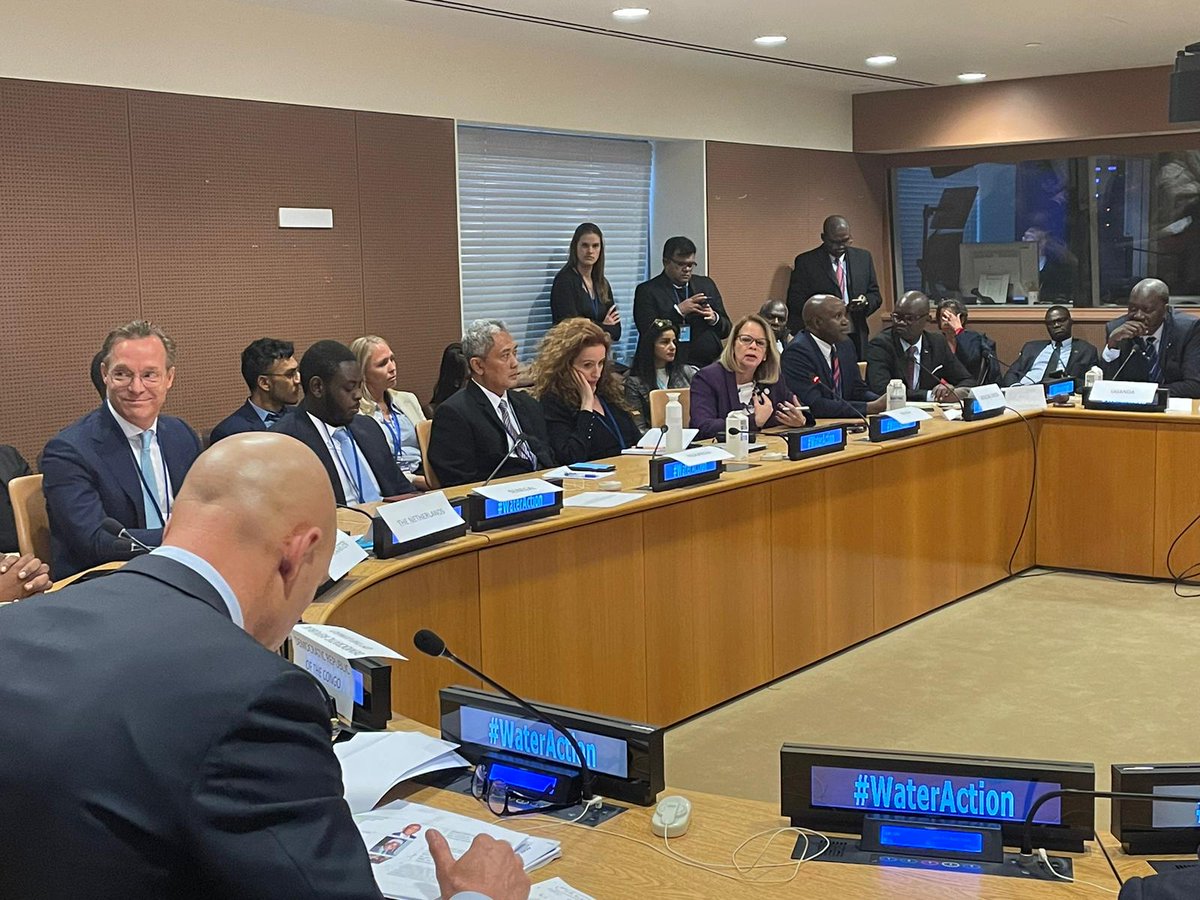GCA and the African Development Bank Co-Host High-Level Dialogue at UN 2023 Water Conference – Water Solutions for Climate Adaptation: Lessons to Scale Up Impactful Delivery
N
ew York, United States of America, 22nd March 2023 – The Global Center on Adaptation (GCA) and the African Development Bank co-convened a high-level event at the UN 2023 Water Conference, to situate water adaptation at the center of the international community’s response to climate change. The event Water Solutions for Climate Adaptation: Lessons to Scale Up Impactful Delivery brought together global leaders to discuss the need to build resilience to climate impacts across Africa, Asia, Small Island Developing States (SIDS), and all vulnerable nations by sharing proven water solutions that drive climate adaptation and profiling a model of delivery that achieves impact at scale.
Leveraging the success of the Africa Adaptation Acceleration Program (AAAP), the event served as a launchpad for the model to be replicated in other regions such as Asia or Small Island States. The AAAP is an Africa-owned and Africa-led initiative developed by GCA and the African Development Bank in close collaboration with the African Union.
Prof. Dr. Patrick Verkooijen, Chief Executive Officer of GCA, chaired the session, which included leaders of government, ministers, and other high-level representatives from international organizations and regional institutions across Africa, Asia and the Caribbean.
In line with the UN 2023 Water Conference’s call to leverage water for climate resilience, participants affirmed the critical need for climate financing to continue supporting adaptation efforts. Water is a key enabler of climate action, with about 60 percent of adaptation measures linked to water – yet, only 3 percent of climate funds have gone to the water sector. Adaptation as a whole is still not receiving climate finance at the scale needed to respond to the climate emergency. More than 90 percent of global climate funding (US$746 billion) was channeled to mitigation in 2018, leaving only US$34 billion for adaptation. Participants emphasized that adaptation financing must be increased to achieve the large-scale impact that builds resilience and protects vulnerable communities and regions. Participants also discussed the importance of programs such as the AAAP that provide assistance and capacity to overcome challenges and decrease risk.
Prof. Dr. Patrick Verkooijen highlighted the importance of drawing lessons from collective experience on how solutions can be best applied, and the urgent need to scale up adaptation efforts. He also highlighted the potential of the AAAP to be replicated in other regions such as Asia and the Caribbean.
African Union Commissioner for Rural Economy and Agriculture, Josefa Sacko underscored that all parts of Africa are affected by water scarcity, and that adaptation and resilience building must remain of primary importance for the African Development Bank and GCA.
Dr. Beth Dunford, Vice President for Agriculture, Human, and Social Development at the African Development Bank, spoke about the critical need for climate financing to support ongoing adaptation efforts and how important the climate risk assessment process is to identify vulnerable areas.
The Prime Minister of Aruba, H.E. Evelyn Wever-Croes, described how their island nation is already experiencing the effects of climate change and requires funding assistance. The Prime Minister welcomed the idea of replicating the AAAP model for SIDS, stating that there is “a huge financial opportunity for the private sector” to invest and calling on the financial community to increase its support as the SIDS “cannot wait any longer.”

The AAAP, initiated by the African Development Bank and GCA, aims to mobilize $25 billion by 2025 for climate adaptation, focuses on food security, resilient infrastructure, adaptation jobs and climate finance. In its first 24 months of operations, the AAAP’s Upstream Financing Facility has influenced more than $5 billion in upstream investments with Multilateral Development Banks in 27 countries in Africa.